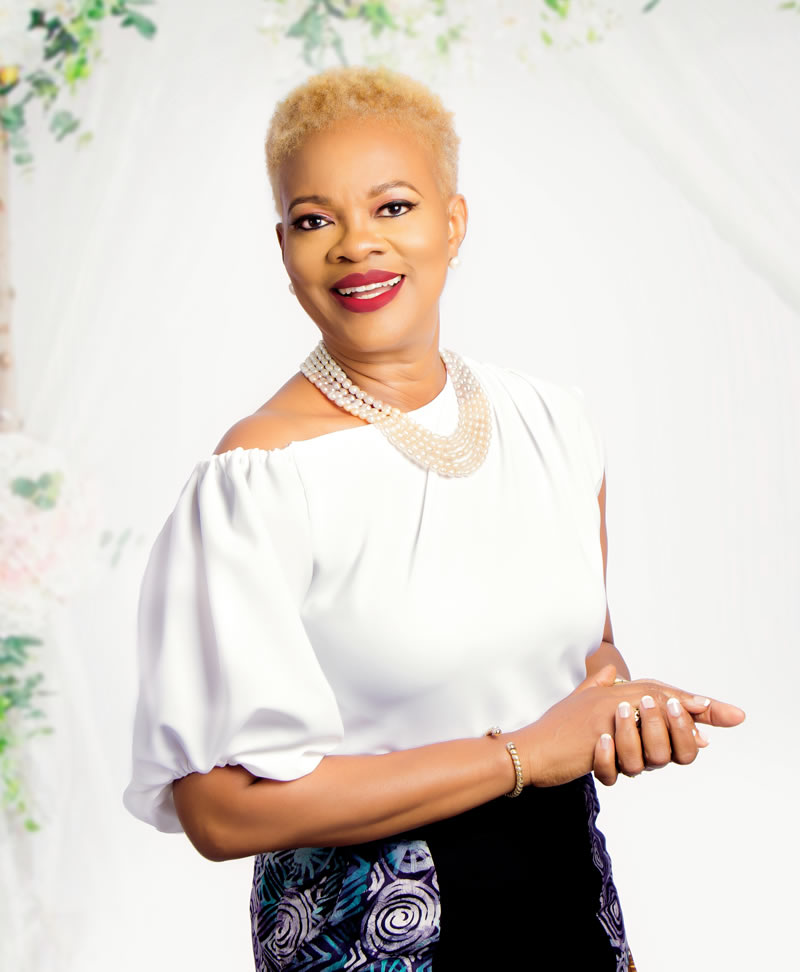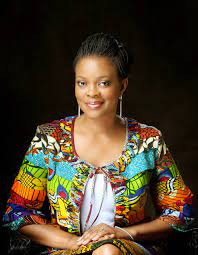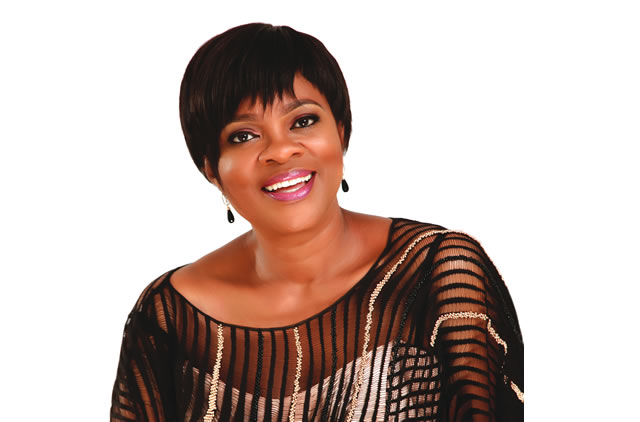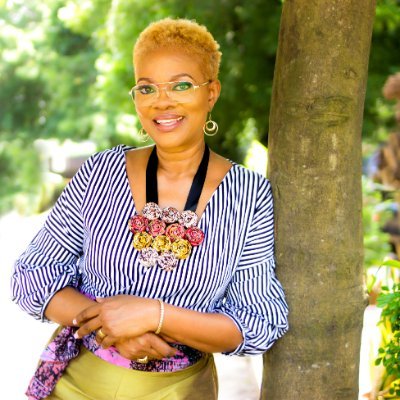
Adesuwa Onyenokwe Biography
Adesuwa Onyenokwe is a renowned journalist, media personality and publisher. She is an influential force in the Nigerian media space, having contributed over three decades to exceptional journalism and over thirteen years of publishing. She is the founder and Editor-in-Chief of Nigeria’s leading Women lifestyle magazine; Today’s Woman and was the Managing Director at Universal Communications.
The Varied Scenes of Growing Up
I grew up in a very large family. We had many cousins who lived with us. At every point in time, we were at least eighteen people in the house. My father was from a polygamous home. He was the first child of his parents. He had the responsibility to raise his younger ones. We all lived in the same house. My mother too had her relatives who were staying with us. It was later I learnt that my mum’s reputation as a disciplinarian earned her admiration and love. For instance, her sisters’ children were raised with us because they felt that my mum would properly handle their children. We had to share everything we had as one family and sharing gradually became natural to me. We also learnt to respect one another, in spite of our large number. Most importantly, we learnt to be contented with the little we had because we never could have everything we wanted. There was never a time we had enough. I was speaking with my father recently and he told me he wished he could show me his accounts book those years back. His account
was always in the red, much to our ignorance. My father was a permanent secretary in the civil service, but he didn’t lead an extravagant life. He had most of our needs met: we went to school, our fees were paid and we ate well. Once in a year, he would take us to Kingsway Stores, as many as we were. His own biological children were eleven. He would buy a lot of items for us. He encouraged us to strive harder
by setting for us a standard, which we had to meet. For instance, he said to me, ‘don’t worry, when you graduate, I will send you to Europe.’ So I kept working hard and kept the hope of traveling alive. I remember the ticket he bought for me. It was two hundred and something naira then, but I knew his
salary was not more than five hundred naira. My mum was a social welfare worker. She took care of children in the welfare home and became used to dealing with the toughest of characters. Our family was not only large; we had much housework to do as well. Though we had house-helps, we all participated in the house chores. The boys cooked because they were older. I can’t say I was close to any of my parents. My father was easier on me, maybe because I am his first daughter. He was more approachable and had
the final say when it came to discipline. Mum was quick to use the cane, though I had no serious friction with her. Dad always made special effort to play with all of us. When it came to our overall interest, both parents probably thought they knew best, even though we thought we knew what exactly we wanted. It hurt whenever they didn’t trust us so much. But now, I have teenagers and I am going through the process too. I lived in a communal atmosphere where we looked out for one another. We liked to win one another’s affection and my children still don’t know that my cousins aren’t my blood brothers because we’ve remained close all along. When I was much younger, we lived in the same compound with my father’s two big sisters. There were four families in one compound; it was a big family house. I didn’t have much influence outside the family confines because my family was already very large.

‘Go and Get Pregnant!’
The first person to make an impression on me was my primary five teacher. I’ve forgotten his name but I remember him because he was upright. He taught us Mathematics and was my class teacher for some time. He was a disciplinarian, though very caring. He was never in a hurry to explain issues. He made an impact on me, and I wanted to be a teacher too. In those days, teachers were highly regarded. Another person was my French teacher, Miss Ezenwa. She was the first person to burst my bubble about growing up. One day, she called me and said, ‘you seem to be so much in a hurry to grow up and when you do, you would soon get tired of it.’ That, for me, was instructive because she was the funkiest teacher in school then and here she was telling me to finish my studies and forget about the privileges of adult
life. Through her, I learnt to be patient. Another experience happened when I must have been in the primary school. I cannot remember how old I was then, but I had this teacher that was supposed to be a relative who pulled me to a corner and tried to fondle my breast. I will never forget that experience. It gave me the first impression of how men can overstep their bounds, and it was an eye opener for me. I
looked at the experience beyond the physical and it made me more conscious of my dealings with the opposite sex and a bit more discerning. The first experience I had of death was when I lost a close friend, Jane. We were mates at the primary school. Over time, her elder brother and I became friends, but I still remember her all the time: slim, light skinned, and an angel. I also recall the civil war. I was a kid then and we were living in a communal place before my father built his house. The men would gather in the evening to listen to the radio, even as life continued. We kids were lost in our own world, oblivious of what was happening. I was always wondering then if the war wasn’t some kind of fun. I never liked the boarding house and it’s the only thing I recall about secondary school. But I liked my school, Idah College, Benin. I played many pranks, just to be a day student. I would pretend I was sick and would be taken home. For three weeks, I would be going to school from home until it was suggested I become a day
student.
READ ALSO: Grace Egbagbe (Biography), Former Marketing Director, Nigerian Television Authority
The National Service experience in Sokoto was memorable for me. I did not like my being posted to Sokoto State and I had asked my father to change it. He insisted I had to go. I was at home for a month and when he saw I meant business, he put me in the car and asked the driver to take me to Sokoto. It
was a thirteen-hour journey and I grumbled all the way. But the experience became one of the best things that happened to me. I saw a different world and realized you don’t judge people by mere hearsay. It helped me to become more tolerant. Like everybody else, there is always a part of us we do not like. I used to wish I had some more fat on me. I would draw up a list of provisions to buy, but when my dad goes through it, he would strike out some of it. I wanted to get fat; everybody else had developed curves at age fourteen but I was still like a stick, no breast, nothing! It was a serious issue for me. Now, I wish I
could reduce the fat in my hips!

As a teenager my parents would probably call me a rebellious person. Before we could go out, we must present the invitation card for the party we wanted to attend. I had finished my Secondary School Certificate Examinations by the time I was fifteen and the only thing I thought was left to do was to go to parties. I was lucky to have had three elder brothers who would always join me to present any invitation card. My parents would allow us, but we were always told to be home at 11 PM latest. Now as a mother, I understand those fears. But then, all my mother told me was, ‘if you like, you go and get pregnant!’ I was always wondering how I could get pregnant when one had to be in love with a boy and sleep with him before that could happen. I only wanted them to trust and believe me, because I knew how important being educated was to my parents. I hung out with guys but I never had a boyfriend till I was in the university. I believed in my parents and they believed in God. We didn’t always pray, but somewhere along the line, when I was in the secondary school, it became a daily affair, even till today. We would gather and worship together. I guess adversity makes one go on one’s knees. These days, when one thinks of the things one has done and has to do, one has to refer to the Creator who is supreme. Thus I become hopeful knowing that the things I don’t have today, I can have tomorrow.
Communicating Values
I had my primary and secondary school education in Benin. I went to the University of Ife to study Dramatic Arts in 1983 because I wanted to be a producer. The University of Ife did not have a Mass Communications Department at the time. When I returned home after service, there was no vacancy for a TV job, so I taught for a while before I could begin my career on TV. In 1987, I went for my master’s degree in Language Arts at the University of Ibadan. I got married in 1988 and we moved to Lagos. I
participated in a Rockefeller Foundation Leadership Programme in Environment and Development and today I am a LEAD fellow. In those days, television was new and one saw all sorts of programmes on air. I admired commercials, especially the way they were put together. I wanted to do public relations and advertising. My father was quite liberal with regard to one’s choice of course of study. I did science and arts subjects in secondary school. My best results were in Mathematics and Physics, but I knew I would go to the arts. It was only in the University of Jos and the University of Nigeria, Nsukka that one could study Mass Communication in the late seventies; and I was only sixteen then. There was no way I could go that far and since the University of Ife had Dramatic Arts, I accepted to go to Ife.
My first working experience was as a teacher in Benin, but I was only there for nine months. I ended up with the state broadcasting service. I later moved over to NTA, Lagos, in 1988 and retired in 1997. Currently, I produce Today’s Woman on NTA network. I have spent five years on the screen and we have done two years on the local scene. Every time, a viewer says, ‘Oh! I like your programmes’. It gives me much pleasure. The greatest challenge is to be able to communicate. Television is related with glamour,
so I have tried not to make my talk show too intellectual. I also realized that the talk show is not just a platform to chat. It is for one to be admired, to be inspired, and to be challenged. So I do a little introduction of the guest and give a quote that sums up the value I am trying to promote, hoping that when the audience listens, they will be able to pick out the points. We’re still growing. I work on my own, so I plan my family responsibilities and house chores a bit better. I only wished the work environment were more family-friendly. It’s not every woman that ends up having a home or a child. Women are better marketers because they are better at persuading people; but they don’t have to be exploited. Financing the programme is a challenge because anything worth doing is worth doing well. Bringing out something of value consumes money. You know you need to do this, but the question is where are you going to get the money? I have been asked why I am focusing on only women. Everybody could watch, but women are our primary target on this particular programme. The plan is to produce other programmes in due course. One should do things that are important because it makes one more efficient. In my kind of work, inefficiency on my part does not show easily. I have the God given talent to sit down and chat; but then business has to grow. I do other things. I produce documentaries and have been able to manage my
resources well.
I have learnt to grow in all things. I have had to grow and I try to get feedback to know what the audience has learnt. My goal has been constant: to have people share their experiences so others would be inspired. I have tried to do this with limited resources. My greatest strength is flexibility. Also, I try to give people the benefit of doubt, until proven otherwise. Sometimes I procrastinate, and at times, I am too focused on what people think about me. In communication, one gets a message and one tries to decode the message. In my head, I always want to know how my message is perceived. The truth is, one cannot look good to everybody; one just has to try to make people understand one’s point. Apart from being hardworking, I have always wanted to do whatever I have to do well. I take responsibilities very seriously. As I grew up, I thought about making a difference. I always told myself, ‘Do what you are supposed
to do.’ If I know I can sweep this place super clean, I would not do it halfway. This has been my working philosophy.

The Woman’s Femininity
I never went through any gender bias while growing up. My brothers did the cooking until I was old enough to join them. There was no marked difference among us with regard to the chores we partook in. My brothers tidied up the mess when the babies’ napkins got soiled and I did those things as well. It was a question of getting to a certain age and assuming responsibilities. As I went through the higher institution, till now, I’ve never been told I can’t do certain things because I’m a woman. But I do know
there are certain things I cannot do because I’m a woman. It’s not because anyone is discriminating against me; it’s just because the job isn’t designed to tolerate the woman and her femininity. I can only talk of being made to feel inadequate. I left my work because of the responsibility of having to raise my fourth child. As a reporter, I worked late on Saturdays and Sundays and I still had to be at work on Monday, even if I had nothing to do there. I had to be there and sit, and at such times, I felt uneasy not knowing what was happening to my children. I kept wondering why I couldn’t stay away from work those days I had nothing to do. The challenge was on how to make my immediate boss understand this. The rest of the group saw it as being preferential, but my boss knew I was hardworking. There was no assignment I was given that I wouldn’t do, at whatever cost. So if I weren’t a female that had primary responsibilities, I probably would have stayed on working for somebody. But I got tired of it because I couldn’t manage it well. I got home one night and my children were still in their uniforms! But there’s a difference now as an independent producer. At any time I think is reasonable, I can decide to stop what I am working on and return home.
I would not use the word ‘discrimination’ to describe the average Nigerian woman. Rather, I would say she faces a lot of challenges. The cost of living is high and the woman, in addition to the care she gives at home, also has other responsibilities that take her away from the home. Most women are not motivated and what moves a woman is motivation. Sometimes, it is believed that because one is a woman, one cannot carry out some tasks. The woman is thus not given some responsibilities just because of that assumption; and this kills motivation. This phenomenon thus becomes a trap for many women. For example, I know some women have difficult pregnancies. But one should not make assumptions that every woman would have that experience and be unable to contribute her quota to society. Responsibilities should be shared and women should be given the opportunity to prove themselves. Many women are very materialistic and allow materialism to submerge their spirituality. The Bible says, ‘dust to dust’. It is what one gives to someone else that counts. Being overly materialistic brings in dissatisfaction and women begin to see each other as competitors. For instance, there is the tendency to want to be seen with a person using Gucci bags; but those things don’t define us because there are a thousand and one other things one can still look good in. Laying emphasis on material things could make one miss the point. Excessive materialism and spirituality cannot go together and the devil seems to be using that to get the better of us. Thus, we are not much of a team. Also, some of the older women aren’t much of a helping hand to the younger ones and the younger ones are just too much in haste. When they
see you up there, they think you just got there. Women play managerial roles in their homes. They’re the managers, the nurturers, so they are more likely to have all those qualities that would lead them up. But then, not all women develop such qualities.
Endless Love
I have been married since 1988. It has been a journey of self-discovery. Basically, one has to work at harmonizing different ideas; so it is all about constant negotiation and understanding. I used to think that a good marriage depends on the wife, but I’ve since changed my mind. If you have a good man, who is willing and patient enough to let you make your mistakes, and still be communicative, one can make a success out of the marriage union. It is important for the woman to ensure that no matter how hard it is for her, she remains her husband’s favourite. While he is the head, the wife should be the neck, but the two have to be together. It is a power game really; one has to know when to step down or step up. There is need for tolerance too. It is a learning process; there is no end to it. I did not think much on the marriage vows when I took it. The Catholic Church to which I belong asks intending couples to go for lectures and learn about each other; and that is okay! But in my view, the real learning begins when both partners are together. That is when one learns tolerance. The truth is, I probably got married thinking I would go out of it if it did not work out. But I offered a silent prayer to God that I wanted a miracle in my life. God gave me the kind of man I wanted to marry. It is good to know that once one gets into it, there is no going out, and so one loves one’s partner no matter how difficult the situation. I never thought I could have six children and love them; but I do and that capacity to love keeps growing. I love them differently and each of them has a special place in my heart.
I like going out, watching movies and reading books. What I eat most now is rice with vegetable soup, though I think unripe plantain with vegetable is my favourite. I derive pleasure in giving people the opportunity to be the best they can, knowing that no matter what one achieves here, the material things
will rot. It is what we’ve done for others that will remain because they would in turn deposit such values and blessings in other people.




